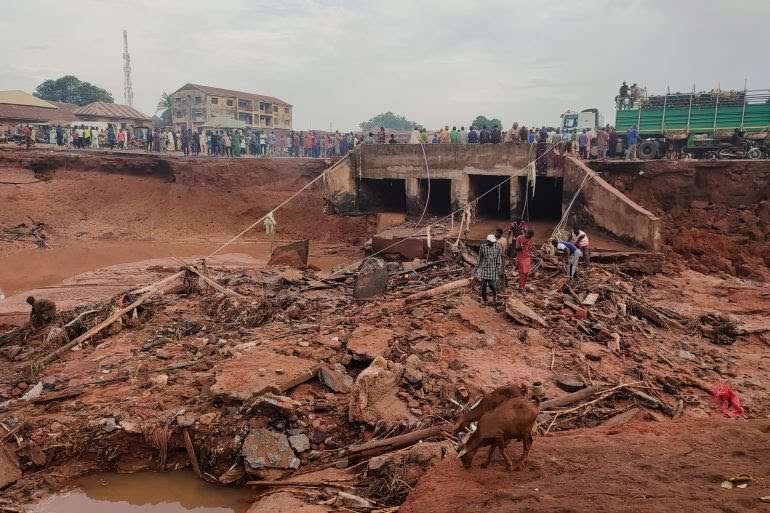Nigeria is in the grip of one of its deadliest flood disasters in years, with torrential rains triggering widespread devastation across 30 of the country’s 36 states. The floods, which began intensifying in late May, have now claimed over 200 lives and left more than 500 people missing and presumed dead.
Epicenter: Mokwa, Niger State
One of the hardest-hit areas is the town of Mokwa in Niger State, where flash floods swept through communities in the early hours of May 29. Entire neighborhoods were submerged, leaving over 3,000 people displaced and hundreds feared lost. Emergency crews have ceased rescue operations, believing there are no further survivors.
Widespread Destruction
The scale of the flooding is national. In Kogi State, more than 2 million residents have been displaced and over 200 communities submerged. Across the country, millions remain at risk as rivers overflow and dams reach critical levels.
The situation has been made worse by outdated infrastructure, inadequate drainage systems, and poor urban planning. Water releases from hydroelectric dams have also contributed to downstream flooding in several regions.
A Climate Wake-Up Call
This disaster highlights Nigeria’s increasing vulnerability to extreme weather events, which scientists attribute to climate change. Rising temperatures and erratic rainfall patterns are overwhelming infrastructure not built to withstand such conditions.
Relief efforts are underway, with government agencies and aid groups working to deliver food, water, and temporary shelter. But with roads washed out and entire communities cut off, humanitarian access remains a serious challenge. There are growing concerns about disease outbreaks and long-term displacement.
As the floodwaters slowly begin to recede in some areas, the true cost of the disaster is only beginning to emerge. The tragedy underscores the urgent need for improved disaster preparedness, sustainable urban planning, and climate resilience measures across Nigeria.
-Deeprows News





